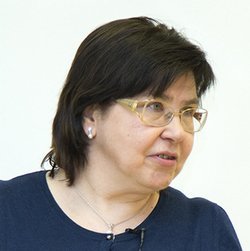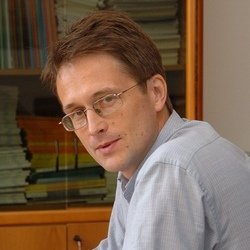What consumer market will be like in near future
Recent research of scientific institutes exposed consequences of the crisis
The coronacrisis is creating new consumer realities in which the economy will be long living after the restrictions are lifted, claimed participants in an online conference of Skolkovo Moscow Management School. At the moment the reality is so that over 35% of Russians have begun skimping on food, while almost a half claimed they have completely or partly lost income. And not all will go back to their old lifestyle after the restrictions are lifted. Read more about the outlines of the consumer market in the near future in Realnoe Vremya’s report.
“What are we skimping on? Almost on everything”
As Director of RANEPA’s Institute of Social Analysis and Forecast Tatiana Malyova noted at the online conference of Skolkovo Moscow Management School, outlines of the future economy anyway depend on how the population will behave now.
She thinks that now we are at the first stage of the crisis. Malyova reminded the audience that it was already the third crisis in the last decade, this is why the population of our country already “became very experienced” in adaptation to it. She supposes that the crisis in 2014 gave us special lessons: it was long.

Switching to the current crisis, she said that from a perspective of incomes, all social groups in all settlements and all ages began to economise. “What are we skimping on? Almost on everything!” Malyova answered her question herself. But, first of all, on entertainment.
As RANEPA’s Institute of Social Analysis and Forecast found out, the poorer people the more economical. But during the crisis people in cities with over 500,000 and middle-aged people from 36 to 55 years began to “commit this sin”.
Malyova considers that Russia still doesn’t have “the perfect storm”: no budget crisis, but it will take place if we start spending social money irrationally. She enumerated possible supporting measures for the population: to give people jobs, give money, give food.
The faster the economy will start to recover, the less it will be necessary to help with money. The speaker stated that small and partially middle-sized businesses have turned out under the grindstone of the crisis. Malyova considers that not a salary loans on which are now granted at a preferential rate but rental is the most important supporting measure for businesses. This is why if the crisis stretches, it will be necessary to announce rental holidays. Precisely they will help a business to survive.
“The exit from this crisis will be more complicated and long”
First Vice Rector of HSE NRU Vadim Radayev continued the topic of rapidly falling incomes of the population. He confirmed: “We are indeed in the centre of the storm”.
He thinks that every crisis is unique, but there is one thing that unites them all: they are all were sudden and comparable with the current one in GDP fall. But though they were sudden but short-term with quick recovery: a year, as much as two years later, consumer demand depicted the pre-crisis picture. And as Radayev notes, not only the pandemic shock is the case: “The exit from this crisis will be more complicated and long”.

According to him, recently published data raises an alarm: 35% of Russians have begun to skimp on food. He says that one skimps on food last. But there is a divergence in the fact that Russians have started to drink more. There was grown buzz in alcohol: people made up reserves. This is data as of late March and early April. Radayev believes that a reduction will inevitably take place then. No matter what is said, alcohol is always consumed less during a crisis.
Head of the Association of Alcohol and Alcoholic Product Manufacturers Igor Kosaryov specified that legal alcohol consumption had reduced. Consumption of illegal one, on the contrary, has increased as well as home-made alcoholic drinks — by 60% in general. Radayev says this happens during all crises. Another peculiarity of the “storm” is that people begin losing incomes. And it is already a big problem in the current crisis. He provided HSE’s week-long numbers: fresher numbers aren’t available yet.
From 10 to 45% of workers in different sectors claim that they partly or completely have lost their salary. And this excludes tourism where the number of such people is 76%. And almost 60% have lost everything, Radayev says. Moreover, from 5 to 20% in sectors still doubt if they will receive money.
He considered hotels, public catering, real estate, services for the population and tourism, of course, as affected sectors. Here there was noted the biggest share of respondents who turned out to be on holiday without pay or lost their job. The second segment is sectors that turned out resilient: most people simply keep going to work. The changes have affected them the least. As a consequence, they have lost salaries less.
Science and education are the third group. They have had a lot of changes, but “everything is full steam”, they simply switched online and began telecommuting. And the Higher School of Economics, according to Radayev, is an example of it.
What’s next?
A 4-6% fall in GDP is forecasted this year: “This isn’t scary. There have been bigger falls”. Though Radayev says that these forecasts change every week, moreover, they become more pessimistic. For instance, it is already said about 11% in the second quarter.
What is important is that we aren’t promised growth paces that would exceed 2% a year through 2026. The speaker called this a “stagnation trap”. In this situation, the vice rector of HSE NRU stated that psychological inertia overlaps with economic inertia. Buyers won’t return to some sectors quickly. Firstly, incomes will recover slowly.
Secondly, the power of inertia will work: the anxiety of the experienced shock will remain. He talked about the same week-long research: people are asked what they will do and won’t do after the quarantine measures are lifted. And from 40 to 50% claimed they weren’t going to visit mass culture events and public catering. The speaker noted that at the moment people are starting to have some new habits, some of them will have an inhibitory effect.
What will people do first after the restrictions are cancelled? It turned out that only 11% were ready to rush to shopping malls and stores. The majority won’t go there, at least in the short run. Two-thirds of the respondents (not by HSE this time) say that they will take food to work, Radayev provided another evidence of the fall in incomes of the population or how people perceive the situation.
Leasers can require zeroing interest rates
However, another speaker, State Secretary and Vice Minister of Industry and Trade of the Russian Federation Viktor Yevtukhov allowed himself not to agree with some numbers. He said in particular that shopping malls in Leningrad Oblast opened, but they had to close again: because of too big traffic of buyers. Obviously above 11%.
Yevtukhov, in turn, confirmed that not all was so bad in the production of foodstuffs and food retailing: “These sales have gone up, on the contrary, due to obvious reasons.”
Food sellers are going through this stage even with higher indicators compared to the same last year. He regretted a bit that the demand that’s called feverish had reduced a bit. According to Yevtukhov, it lasted “literally for about three weeks”. But anyway all big food retailers are now exceeding the average annual indicators even though the flow of buyers has significantly reduced. But the bill is bigger.
The reasons are quite clear: the self-isolation regime has been lifted just recently. People didn’t go to the store often during this regime, they did this time from time and, consequently, purchased more products. “If you all remember that in late March and early April many went shopping as if it was the last time. And by our estimates, 50% of households have purchased goods for up to six months and even a year,” he commented. “This is how they provided a 300% demand growth.”

Yevtukhov named the country’s effort to keep the prices, which especially influenced socially important goods. Anyway, food retailers are at an advantage today, the vice minister noted with satisfaction in his voice.
Though not all is smooth here. The biggest chain stores account for less than 6% of the market: “It is everybody who hasn’t had losses and made money”. But a lot of non-chain stores, which are over 50% of the market, have had a catastrophic reduction in the flow of buyers — almost by half. Most people chose stores of famous brands in self-isolation, which are mostly discounters. Yevtukhov even remembered the law on free trade in the 90s, which he thinks could be applied, but not in the same edition.
By the way, he said that the State Duma had a bill for consideration that grants leasers with a right to requite zeroing interest rates.